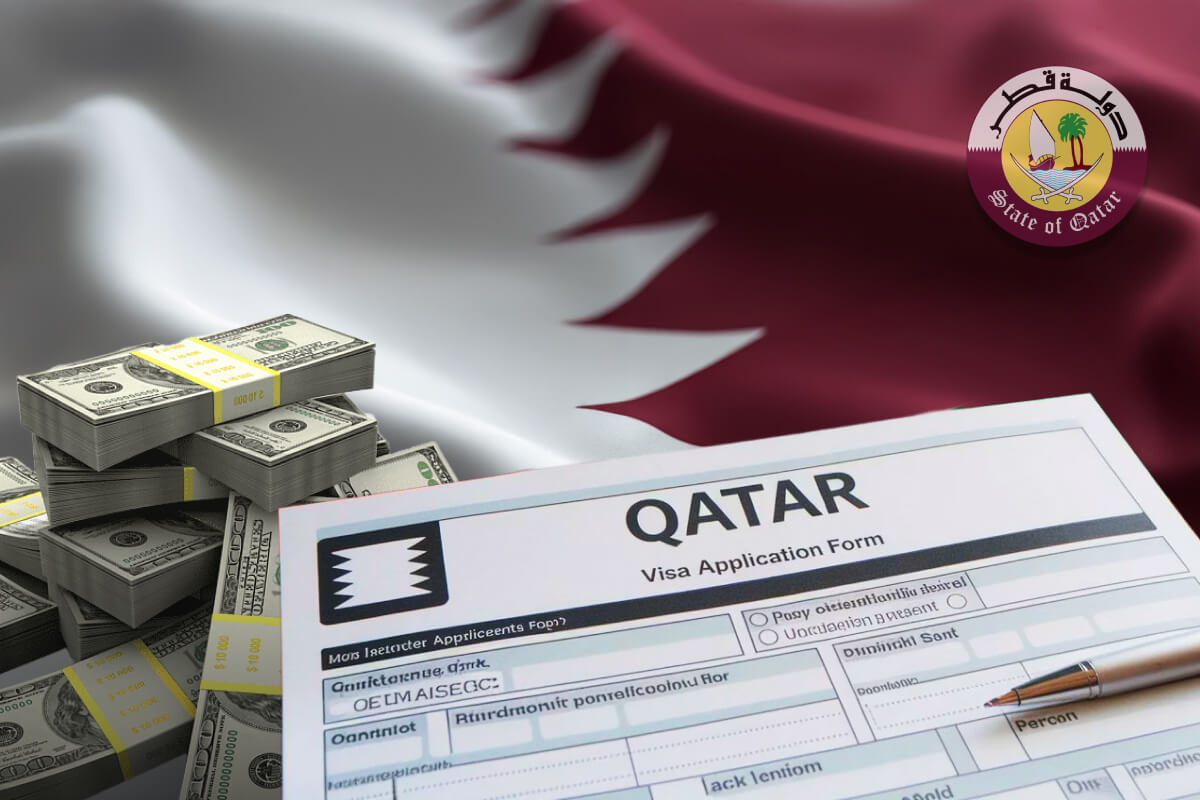
Qatar’s Investor Visa: Small Nation, Big Opportunities
This isn’t a citizenship route, and it’s not meant to be. But if you're looking for a stable place to invest — with reliable infrastructure, modern healthcare, and a steadily evolving property market — Qatar is putting forward a serious offer.
At the center of it is a two-tier system:
-
QAR 730,000 (~$200,000) gets you temporary residency through property investment.
-
QAR 3.65 million (~$1 million) opens the door to permanent residency, with additional benefits.
➞ Foreign buyers can purchase in designated zones like The Pearl, Lusail City, and West Bay Lagoon, all developed with investors and expats in mind.
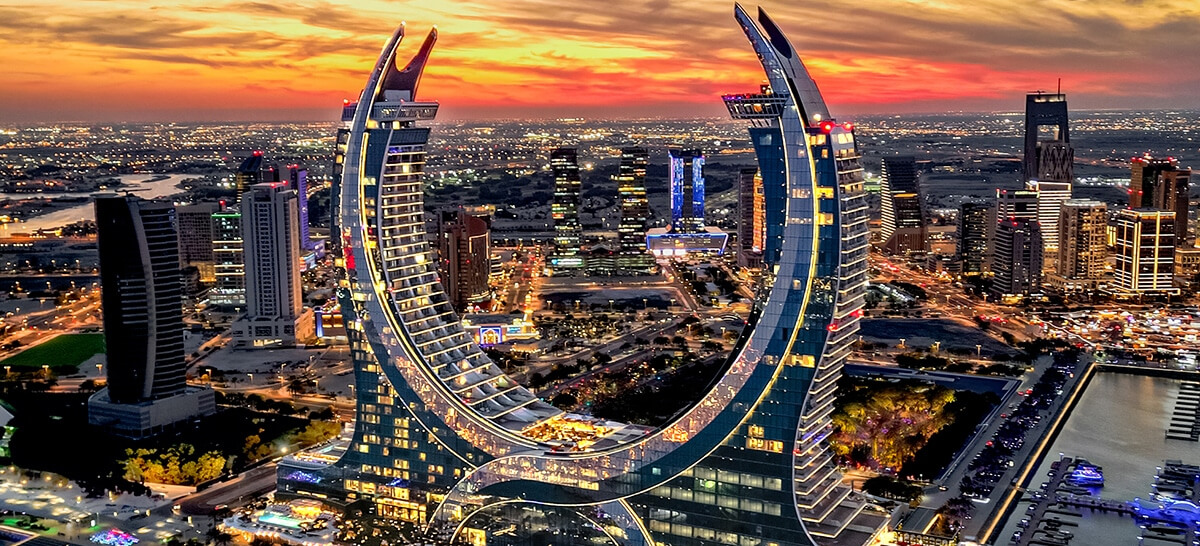
Add to that Qatar’s modest population, tax advantages, and rising interest in international diversification, and you’ve got a program that’s not trying to sell a dream, just offering a fairly straightforward deal.
And when you compare it to UAE’s Golden Visa or Saudi’s Premium Residency, the differences in cost, residency perks, and timeframes are worth examining closely.
▸ In this guide, you’ll get:
-
The exact breakdown of requirements
-
How the application process works, step-by-step
-
What you get with temporary vs permanent residency
-
Real estate zones where expats can legally buy
-
And a full comparison with other GCC residency-by-investment options
Who Can Apply? Eligibility Criteria for Qatar Investor Visa
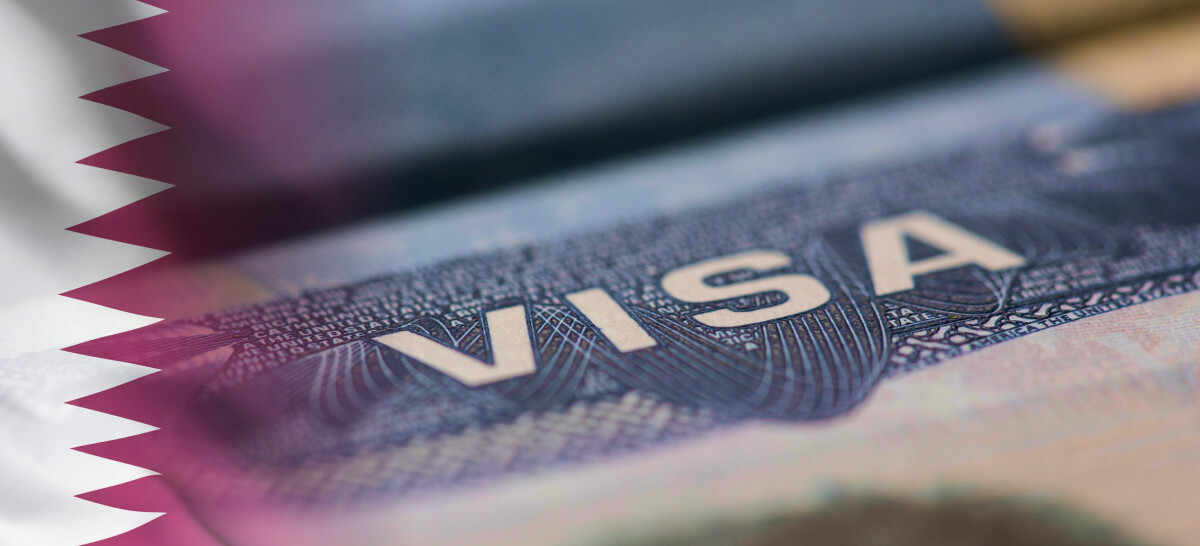
Qatar’s investor visa doesn’t come with a long list of hoops. If you’re an adult with a clean background and the ability to invest in real estate, you’re likely eligible.
But there are two main layers to keep in mind: general criteria and investment-specific requirements.
General Eligibility Requirements
To apply, you must:
-
Be 18 years or older
-
Have a valid passport
-
Pass a security/background check
-
Show proof of income (to demonstrate you can support yourself in Qatar)
-
Provide evidence of legal ownership of property in Qatar
▸ There’s no nationality restriction and the program is open to all foreign nationals.
Specific Requirements for Real Estate Investment
Your eligibility is directly tied to the value of the property you buy:
| Residency Type | Minimum Investment | Residency Validity |
|---|---|---|
| Temporary Residency | QAR 730,000 (~$200,000 USD) | Renewable while property is held |
| Permanent Residency | QAR 3,650,000 (~$1 million USD) | Long-term residency (with additional benefits) |
▸ Important notes:
-
The property must be in designated freehold zones open to foreigners (more on those in the real estate section).
-
You must own the property outright, not rent or lease.
-
Joint ownership (e.g., with a spouse) may count if the combined value meets the threshold.
Temporary vs. Permanent Residency
Here’s how the two types compare:
| Temporary Residency | Permanent Residency | |
|---|---|---|
|
Investment Amount | QAR 730,000 (~$200,000) | QAR 3,650,000 (~$1 million) |
| Duration | Renewable (as long as property is owned) | Indefinite |
| Benefits | Residency, stay rights | Additional perks: public healthcare, education access, business ownership |
| Family Sponsorship |
Allowed | Allowed |
| Physical Presence | 90 days/year minimum | 90 days/year minimum |
Step-by-Step Guide to the Qatar Investor Visa

Once you’ve found a qualifying property and you're ready to proceed, the application process is surprisingly straightforward. Most applicants handle it through the Ministry of Interior (MOI) or a legal representative inside Qatar. Here’s how it typically goes:
Application Process

Choose a Qualifying Property
The property must be in one of the approved freehold zones (like The Pearl, Lusail, or West Bay Lagoon).
Ensure that the purchase price meets the minimum requirement (QAR 730,000 or more).

Sign a Sales Agreement & Complete Purchase
Finalize the property deed and make full payment.
Get a title deed (ownership certificate) from the Real Estate Registration Office.

Prepare Your Application Documents
You’ll need ID, property proof, and other personal documents (detailed below).

Submit the Application
Submit your documents to the Ministry of Interior – Visa Services Department, either online or in person.
In many cases, your real estate agent or legal advisor can handle submission on your behalf.

Wait for Processing
Applications usually take between 2 to 6 weeks to process.
If approved, you’ll receive your Qatar Residence Permit (RP) tied to the property.

Meet the Residency Condition
To maintain the visa, you need to spend at least 90 days per year in Qatar (can be non-consecutive).

Renew or Upgrade
Temporary residencies can be renewed annually.
If you later invest over QAR 3.65 million, you may apply to upgrade to permanent residency.
Required Documentation
Here’s what you’ll need to submit during the application:
| Document |
Details |
|---|---|
| Valid passport (and copies) | Must be valid for at least 6 months |
| Property ownership certificate | Issued by the Real Estate Registration Office |
| Proof of income / financial means | Bank statements or salary certificate |
| Criminal background check (home country) | May require notarization or embassy attestation |
| Recent passport-sized photos | Standard photo ID format |
| Health insurance (sometimes requested) | For visa issuance/renewal |
Application Timelines & Fees
| Process | Timeframe | Cost Estimate |
|---|---|---|
| Document Preparation | 1–2 weeks |
Varies (translation, legal fees) |
| Visa Application Review | 2–6 weeks | Application fees: QAR 1,000–3,000 |
| Total Time to Residency | 3–8 weeks total | Property cost + minor admin expenses |
Qatar does not charge excessive government fees for this visa. Most of the financial commitment is tied to the property investment itself.
Benefits of the Qatar Investor Visa
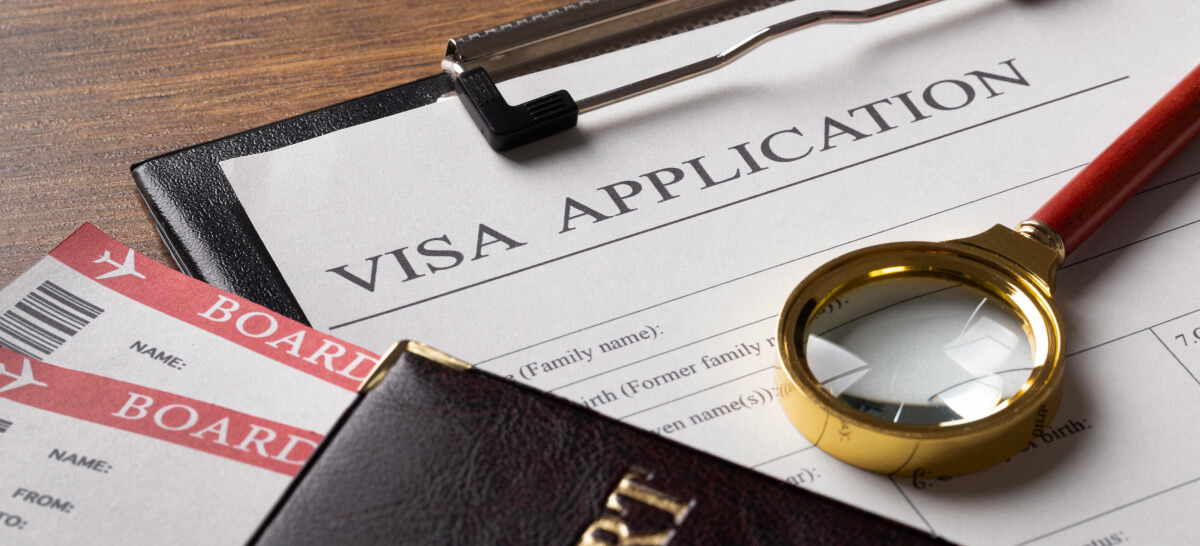
While the visa doesn’t lead to citizenship, it still offers a useful mix of lifestyle, financial, and administrative advantages, especially once you cross the threshold into permanent residency.
Here’s what you gain at each level:
Benefits of Temporary Residency (QAR 730,000+ Investment)
-
Legal residency in Qatar for you and eligible dependents
-
Ability to live in Qatar full- or part-time
-
Right to open a bank account
-
Access to utilities and local services (e.g., mobile, internet, driving license)
-
Rental income: You can lease out the property if desired
-
Entry/exit rights without needing re-entry visas
▸ It's important to note: temporary residents don’t automatically get access to free public healthcare or education, but can still use private services or purchase insurance.
Benefits of Permanent Residency (QAR 3.65M+ Investment)
If you invest QAR 3,650,000 (~$1 million), you can apply for permanent residency — which comes with several extra privileges:
| Benefit | Details |
|---|---|
| Public Healthcare Access | You and your family can access Qatar’s public hospitals and clinics |
| Public Education for Children | Eligibility to enroll in government-funded schools |
|
Business Ownership Rights |
No local Qatari sponsor needed to fully own businesses |
| Long-term Residency Security | Residency is more stable, with no need for annual renewals |
| Family Sponsorship | Easier sponsorship of spouse and children |
While it’s not citizenship, this level of access, especially to schools, healthcare, and business opportunities, is significant for long-term residents or those relocating family.
Path to Permanent Residency in Qatar
Qatar does not offer a formal path to citizenship via investment. However, the permanent residency status is considered one of the more favorable in the Gulf:
-
It does not expire, though maintaining the 90-day/year physical presence remains a condition.
-
It offers many of the same rights as Qatari nationals, minus political rights like voting.
-
It gives long-term stability in a country with a strong currency and stable regulatory environment.
▸ Permanent residency cards are issued by the Ministry of Interior following a successful review and once you’ve held qualifying assets above QAR 3.65M.
Investing in Real Estate: What to Know Before You Buy in Qatar
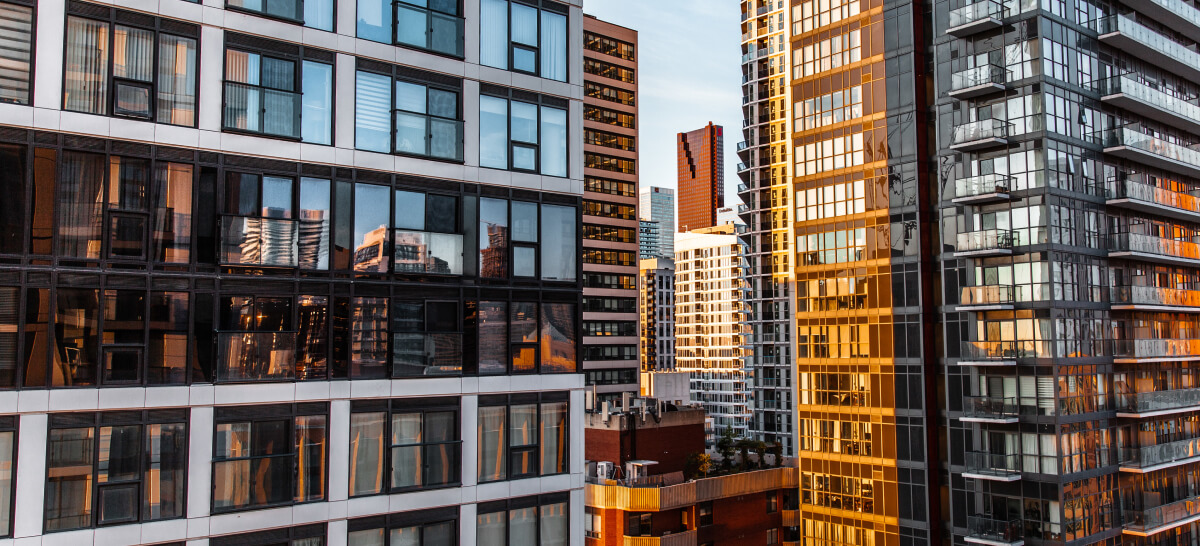
Real estate is a growing market with ongoing infrastructure development, especially post-World Cup. But like any investment, location, timing, and regulations matter.
➞ Here’s a look at what’s currently shaping the market and how to navigate it as an expat investor.
Qatar Real Estate Market Trends in 2025
-
Prices have stabilized after a temporary dip post-2022 World Cup. The market is now showing gradual growth in prime zones, especially for apartments and mixed-use developments.
-
Demand for furnished units and short-term rentals has risen, thanks to increasing business travel and longer stays by foreign professionals.
-
Government policies are supporting foreign ownership, with incentives tied to real estate residency programs.
-
Areas with infrastructure investment (metro access, commercial districts) have seen higher appreciation rates.
Approved Freehold Zones
Qatar has clearly defined areas where non-Qataris can legally own real estate. These are modern developments designed with international investors in mind.
| Area | What to Expect |
|---|---|
| The Pearl-Qatar | Luxury waterfront island with apartments, retail, marina; strong expat appeal |
| Lusail City | Master-planned smart city with apartments, offices, leisure zones; still expanding |
| West Bay Lagoon | Gated waterfront villas; quiet, high-end residential community |
| Msheireb Downtown | Central regeneration area, high-end apartments, focus on sustainability |
| Al Dafna & West Bay | High-rise business + residential district; proximity to embassies, government |
Most investors choose The Pearl for apartment rentals, or Lusail for newer inventory with growth potential.
What to Consider Before Investing
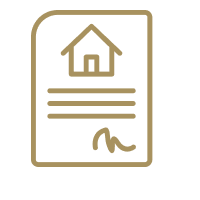
Title deed
Always verify ownership documentation through a licensed real estate office or legal advisor.

Property type
Apartments are more liquid; villas or larger homes may be harder to rent.

Furnishing
Furnished units tend to perform better in the rental market.

Annual charges
Expect service charges and maintenance fees, especially in newer developments.

Exit strategy
Qatar allows resale to both locals and expats, but there’s no fast track for repatriating funds, plan accordingly.
How Does Qatar Compare to Other GCC Investment Visas?

| Criteria | Qatar | UAE | Saudi Arabia |
|---|---|---|---|
| Lowest Investment Option | Yes (~$200K) | AED 2M (~$545K) | SAR 4M (~$1.1M) |
| Permanent Residency Option | At $1M level | No formal permanent residency | Premium Residency available |
|
Physical Stay Requirement | 90 days/year | None | Required |
| Citizenship Path | No | No | No |
| Processing Speed | Fast (2–6 weeks) | Moderate | Slower |
A Practical Route for Investors Who Want Stability

Qatar’s investor visa isn’t trying to compete on headlines, but on simplicity and structure, it makes a strong case. It’s one of the few programs in the Gulf that offers:
-
A low entry point for property-based residency
-
A clear path to permanent status
-
Residency in a stable, wealthy country with consistent economic policies
There’s no flashy marketing, no promises of citizenship. Just a system that gives investors residency in exchange for a defined investment and with the bonus of access to well-managed infrastructure, strong healthcare, and clean legal property ownership.
If you’re comparing programs in the region:
-
Choose Qatar if you want a straightforward real estate visa, are okay with a 90-day stay requirement, and value a relatively modest investment.
-
Look at the UAE if flexibility and fast-paced business environments are key, and the higher investment threshold works for you.
-
Consider Saudi Arabia if you’re focused on expansion or business access in the largest GCC market, and your budget is over $1M.
Qatar might not offer citizenship or guaranteed returns, but for many, that’s not the point. What it offers is clarity and in the world of investment migration, that’s worth a lot.
FAQs
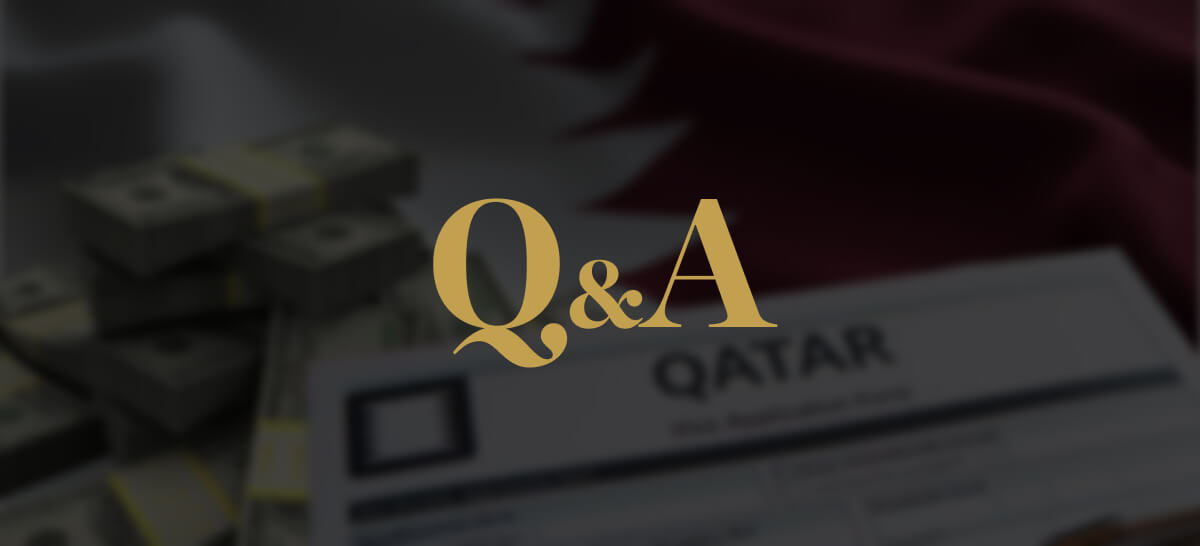
▸ Can I get permanent residency in Qatar by buying property?
Yes, if you invest at least QAR 3,650,000 (approximately $1 million) in eligible real estate, you can apply for permanent residency in Qatar. This comes with added benefits like access to public healthcare, education, and the ability to fully own a business without a Qatari sponsor.
▸ What is the minimum investment required for a Qatar investor visa?
To qualify for temporary residency, the minimum real estate investment is QAR 730,000 (about $200,000 USD). The property must be in an approved freehold zone open to foreign ownership, such as The Pearl or Lusail.
▸ Do I need to live in Qatar full-time to keep my investor visa?
No, but you do need to be physically present in Qatar for at least 90 days per year to maintain your residence permit by investment. This can be spread throughout the year, it doesn’t have to be continuous.
▸ Can I bring my family with me under the investor visa?
Yes. Both temporary and permanent residency holders can sponsor their spouse and children under their visa, provided income and accommodation criteria are met.
▸ Is there a path to Qatari citizenship through this program?
No. Qatar’s investor visa and permanent residency programs do not offer a route to citizenship. Long-term residents can remain in the country indefinitely under the program, but nationality is not part of the deal.
Contents
- Who Can Apply? Eligibility Criteria for Qatar Investor Visa
- Step-by-Step Guide to the Qatar Investor Visa
- Benefits of the Qatar Investor Visa
- Investing in Real Estate: What to Know Before You Buy in Qatar
- How Does Qatar Compare to Other GCC Investment Visas?
- A Practical Route for Investors Who Want Stability
- FAQs



